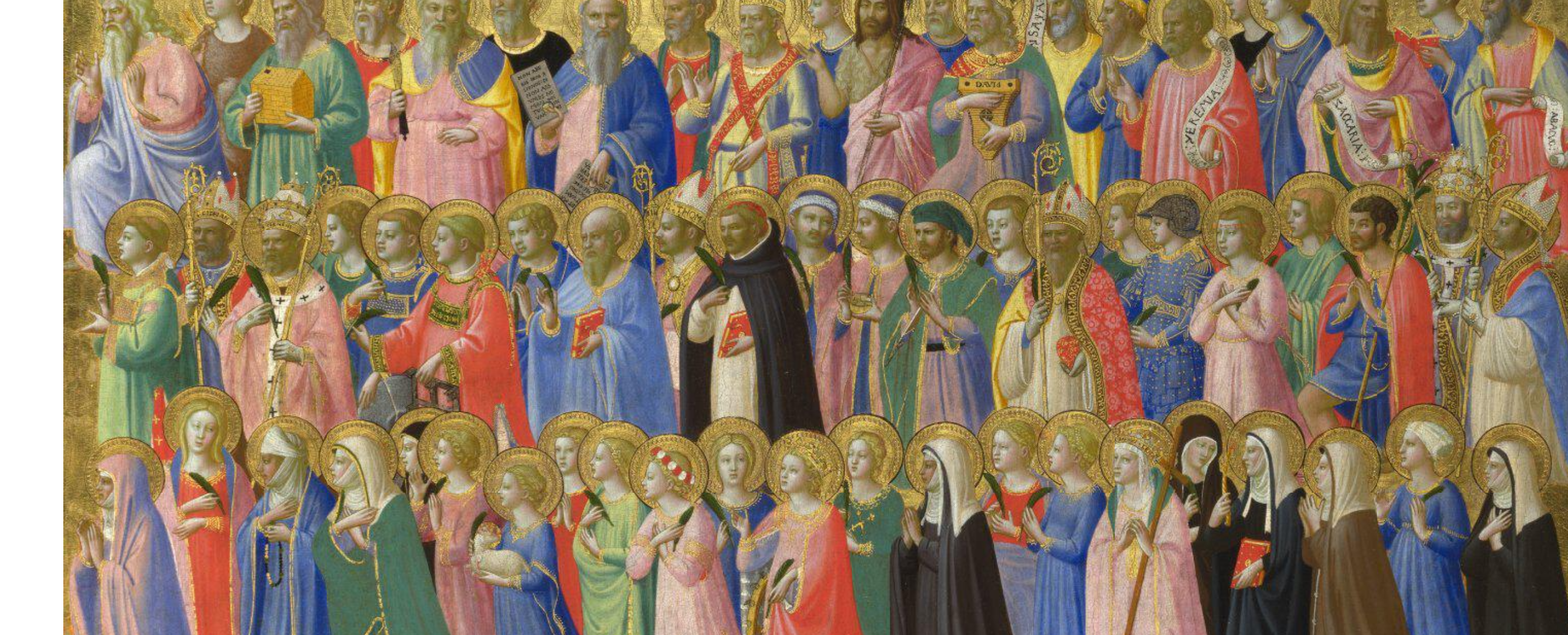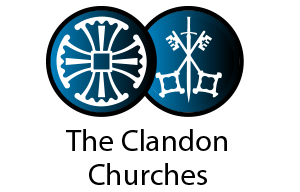
Then I saw a new heaven and a new earth; for the first heaven and the first earth had passed away, and the sea was no more. And I saw the holy city, the new Jerusalem, coming down out of heaven from God, prepared as a bride adorned for her husband. And I heard a loud voice from the throne saying, “See, the home of God is among mortals. He will dwell with them as their God; they will be his peoples, and God himself will be with them; he will wipe every tear from their eyes. Death will be no more; mourning and crying and pain will be no more, for the first things have passed away.” And the one who was seated on the throne said, “See, I am making all things new.” Also he said, “Write this, for these words are trustworthy and true.” Then he said to me, “It is done! I am the Alpha and the Omega, the beginning and the end. To the thirsty I will give water as a gift from the spring of the water of life.
Revelation 21.1–6
When I was at school were taught history generally from the stand point of the good and the great, the victors and heroes. It was easy history, I suppose. There was no shortage of historical record about Raleigh, or Nelson, Disraeli or Churchill. You could go to practically any library, anywhere, and find at least something written about these people.
The trouble was, it was terribly boring. To the eighteen year old me it seemed as though just about everything which could be said about Churchill, had been said about Churchill. I studied history at university not because I found it endlessly fascinating, more because I couldn’t really think of anything else to do. But when I started my degree I discovered a new type of history. I’d studied the English reformation quite a bit for my A-levels, again, predictably through the lens of the the famous heroes and villains of Tudor England, but while I was at university I read a book, only recently published, by a Cambridge Professor, Eamon Duffy, The Voices of Morebath, and it completely changed the way I thought about the past.
Morebath wasn’t a special place, it wasn’t a place where the great battles of the reformation were fought. This tiny, Devonshire village had nothing of any real historical note about it, except for the fact that these ordinary people lived through a time of extraordinary upheaval, and their ordinary priest, Sir Christopher Trychay, priests were called Sir back then as now they are sometimes called Father, wrote about these ordinary people’s lives and struggles. Suddenly I discovered that history wasn’t just about the powerful people who can be found eulogised in libraries, but about ordinary people, who sought to live good lives in unbearable circumstances.
Trychay had gone to the parish in 1520 as something of a breath of fresh air, and spent many years encouraging his parishioners to deepen their love of God, the God whose glory could be seen through the lives of the saints. He was perhaps a bit pernickety in his record keeping, detailing parishioners who were generous in contributing to parish expenses, as well as those who weren’t quite so generous!
Trychay wrote about how the English Reformation first manifested itself in Morebath from 1538 with an attack ordered by the King on the cult of the saints. The parish was ordered to extinguish candles placed before the saints, parishioners were forbidden from asking the saints to pray for them, or to place flowers before images of the saints, or to kiss images or relics of the saints, all the things that Trychay had spent over a decade teaching his parishioners to do in order to deepen their love for God.
Trychay rejoiced when Mary took the throne, declaring Edward’s reign the Church’s decay, and Mary’s reign the church’s comfort. When Mary died and the reformation took hold again, he reluctantly conformed to the new, protestant direction of the Church of England, unwilling to leave the people he had baptised, served, taught and comforted for some 40 years. He continued to guide his small flock into the strange new world of protestantism until his death in May 1574, in his eighties, having served his parish for 54 years, and is buried by his grateful parishioners between the place of the old, Catholic Altar, and the new protestant communion table.
Here is a hero of the faith, a saint, who until written about by Eamon Duffy in 2001, very few people had heard about for some 400 years.
Why have I gone on at length about an almost forgotten priest who lived almost a half a millennium ago? Because he seems a particularly good example to me of how holiness, sanctity, sainthood, can be something almost anonymous. When asked ‘who are the saints’ we can often give an A-Level history answer to the question, ‘the saints are the good and the great, look, here are books about them in libraries’. And it is true: saint is someone in whom the life, and goodness, and truth of the Lord Jesus Christ is made visible in our day, and you can see Christ in the lives of the good and the great. But the A-Level answer is limited, because there are countless multitudes in whom Christ’s life shines, whose holy souls are now united with God in love, the vast majority of whom have never been written about, who are entirely forgotten, except by God, who has inscribed their names in the book of life.
This is why the solemnity of All Saints is so important, because in giving thanks to God for his grace made visible in the lives of all the saints (not just the memorable ones), we learn that holiness, sainthood, is lived out primarily in the ordinary circumstances of the lives of ordinary people, people like Christopher Trychay and his congregation, and those who came after them. People who sought to love God in simple ways, through worship, through love of neighbour.
The solemnity of All Saints reminds us that sainthood is simply that to which each and every one of us is called.
Today, gathered together from three congregations, we worship almighty God as saints in preparation. Like so many before us we will almost certainly not be remembered in history books, or have hymns sung about us, but that does not diminish the reality of the love of God which we might show in our lives. May God give us grace to grow in faith, hope, and love, that Christ may be seen in our unremarkableness.


